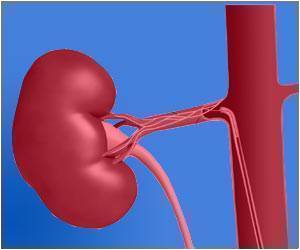Why people on immunosuppressant drugs for autoimmune conditions have a higher incidence of an often-fatal brain disease may be linked to a mutation in a common virus.

‘Why people on immunosuppressant drugs for autoimmune conditions have a higher incidence of an often-fatal brain disease may be linked to a mutation in a common virus.’





Why people on immunosuppressant drugs for autoimmune conditions have a higher incidence of an often-fatal brain disease may be linked to a mutation in a common virus, suggested researchers at Penn State College of Medicine."Nobody comes away unscathed from PML - you either die or you're left with a lifelong searing neurological defect," said Aron E. Lukacher, chair and professor of microbiology and immunology. "Because we don't know how the drugs cause the JC virus to amplify from a silent infection, we really have no way of controlling it."
When other researchers studied the virus in patients with PML, they found a mutation in its protein shell, the part that allows it to bind to and infect human cells. In the new study, Lukacher's team sought to answer the question: Could this mutation affect how the immune system responds to the infection?
To answer this, the researchers developed a new mouse model of polyomavirus infection that shares many characteristics that are seen in progressive multifocal leukoencephalopathy. They learned that mice with mutated polyomavirus strains had a reduced T cell response, the major part of the immune system that protects against the virus.
"We found that mouse polyomaviruses with a single amino acid change in their shell elicit a very different magnitude and quality of the T cell response that is needed to control the infection," Lukacher said. The researchers also found that a signaling protein called type I interferon controlled the difference in T cell response in mice with this mutant polyomavirus.
Advertisement
It is still unknown how immunosuppressant therapies may cause these mutations in JCV, the researchers said. However, understanding the importance of the T cell response could help researchers prevent the development of progressive multifocal leukoencephalopathy in autoimmune patients."We need to find ways to improve the T cell responses in patients on these therapies," Lukacher said.
Advertisement















